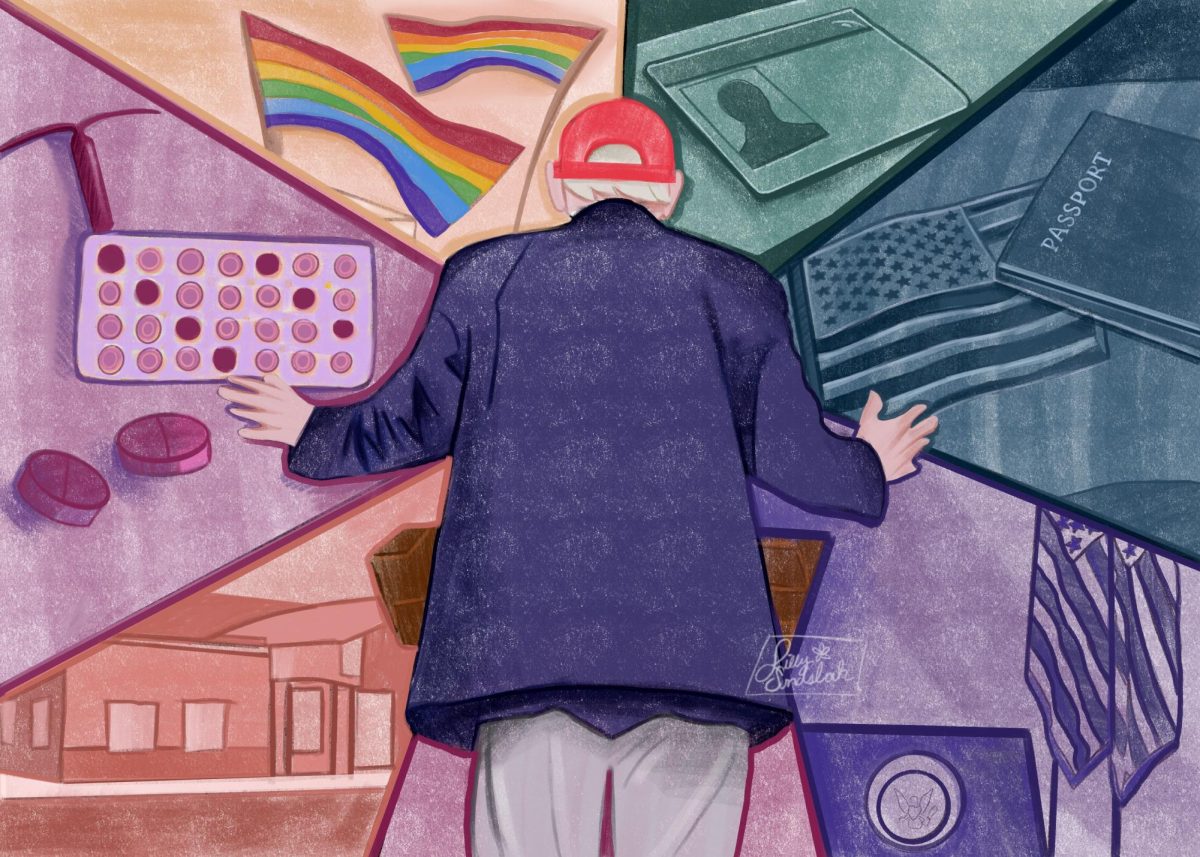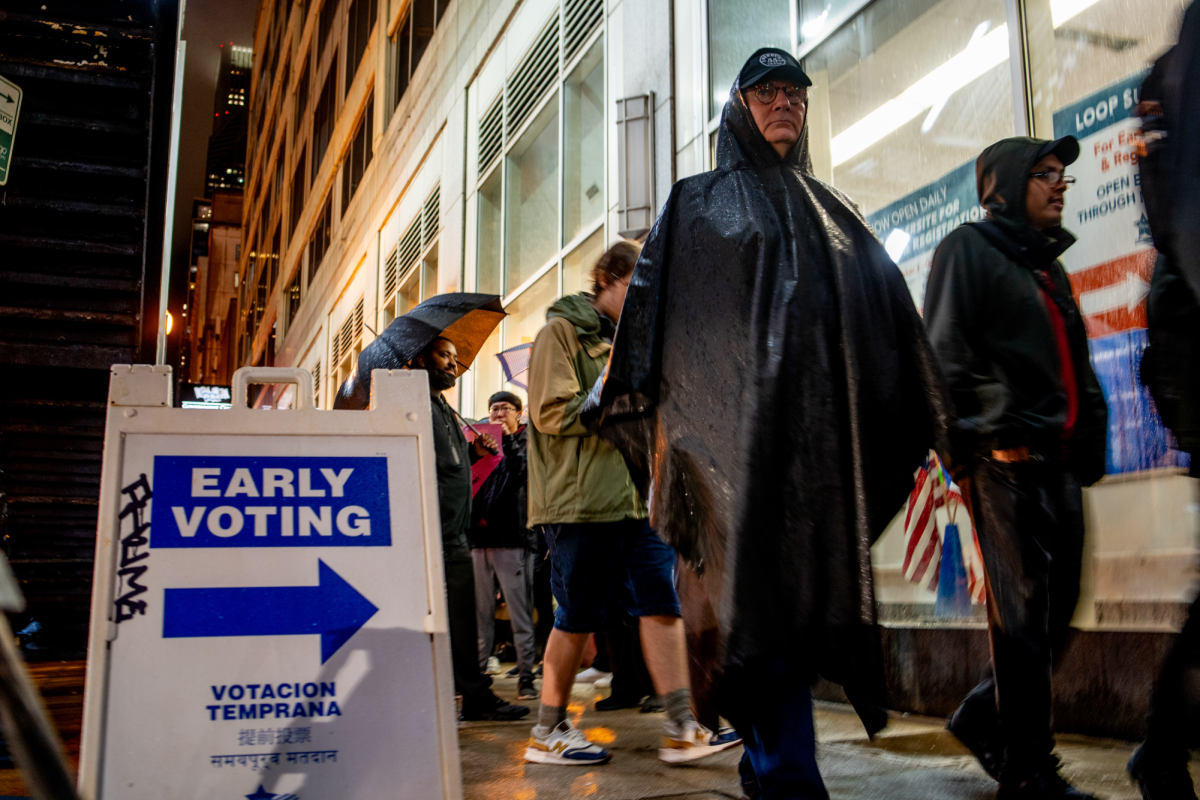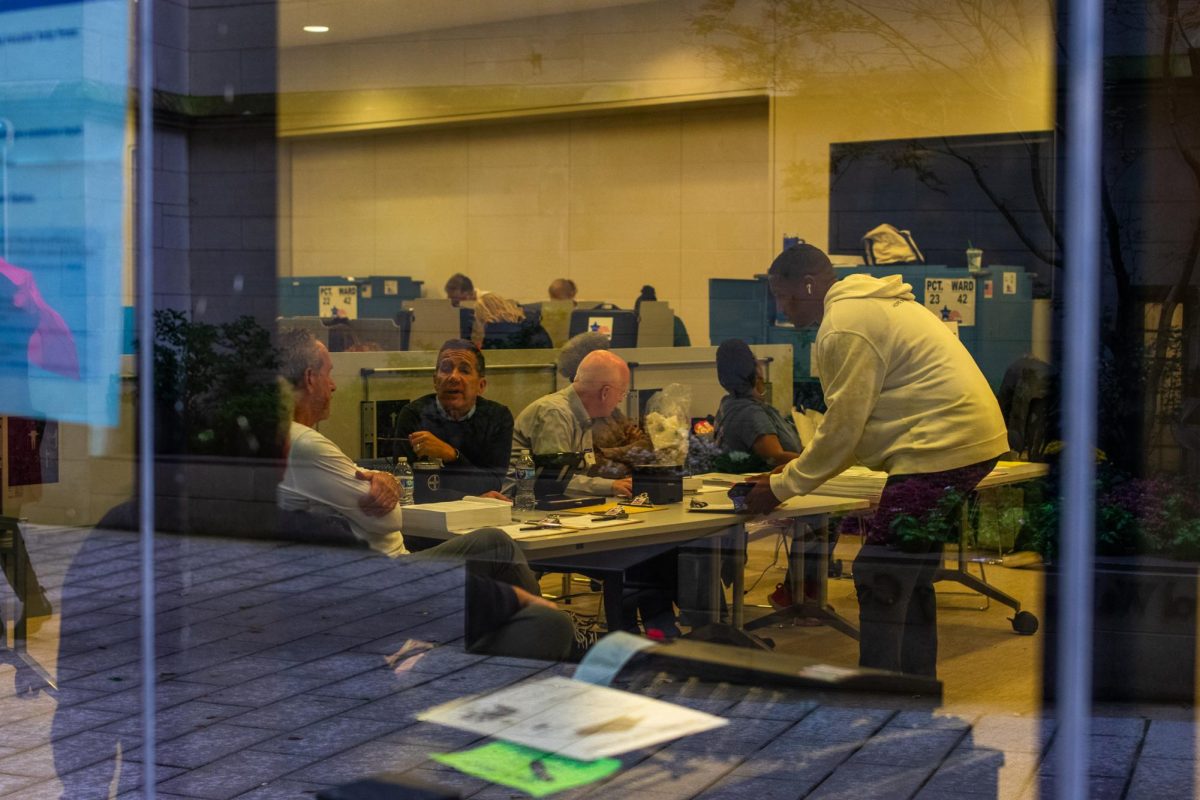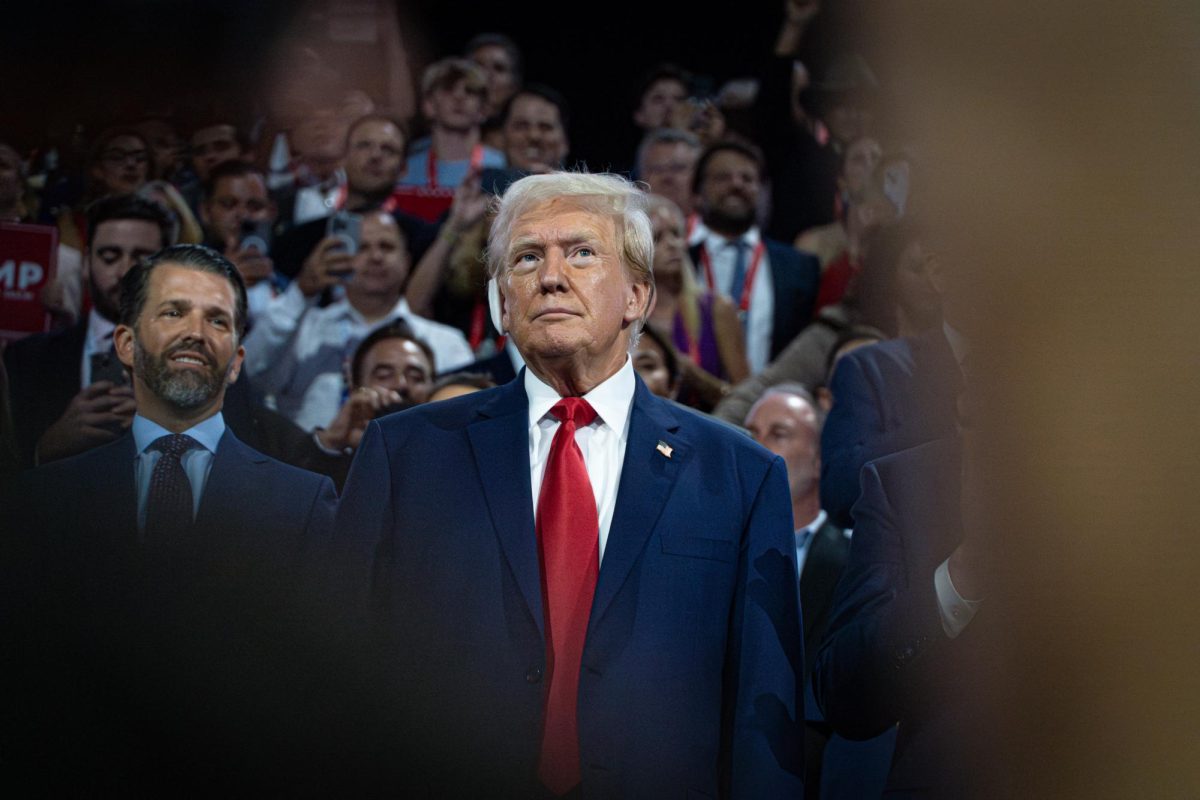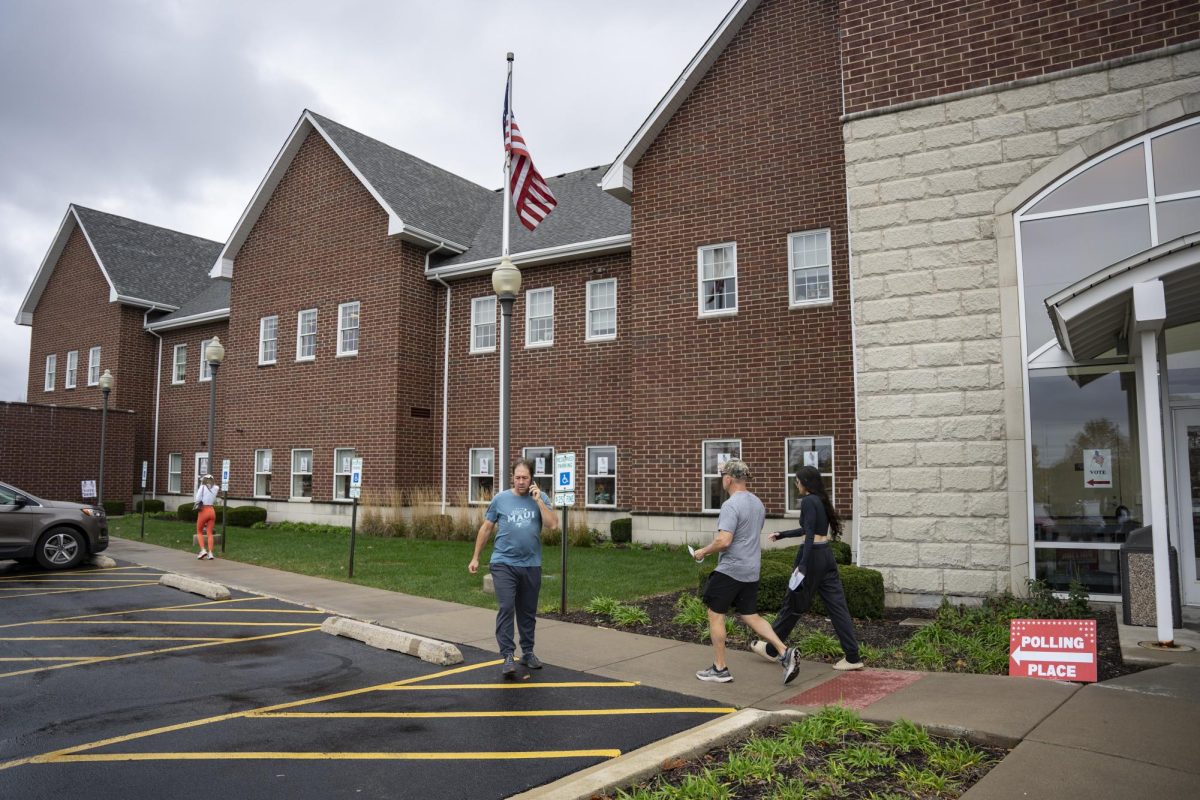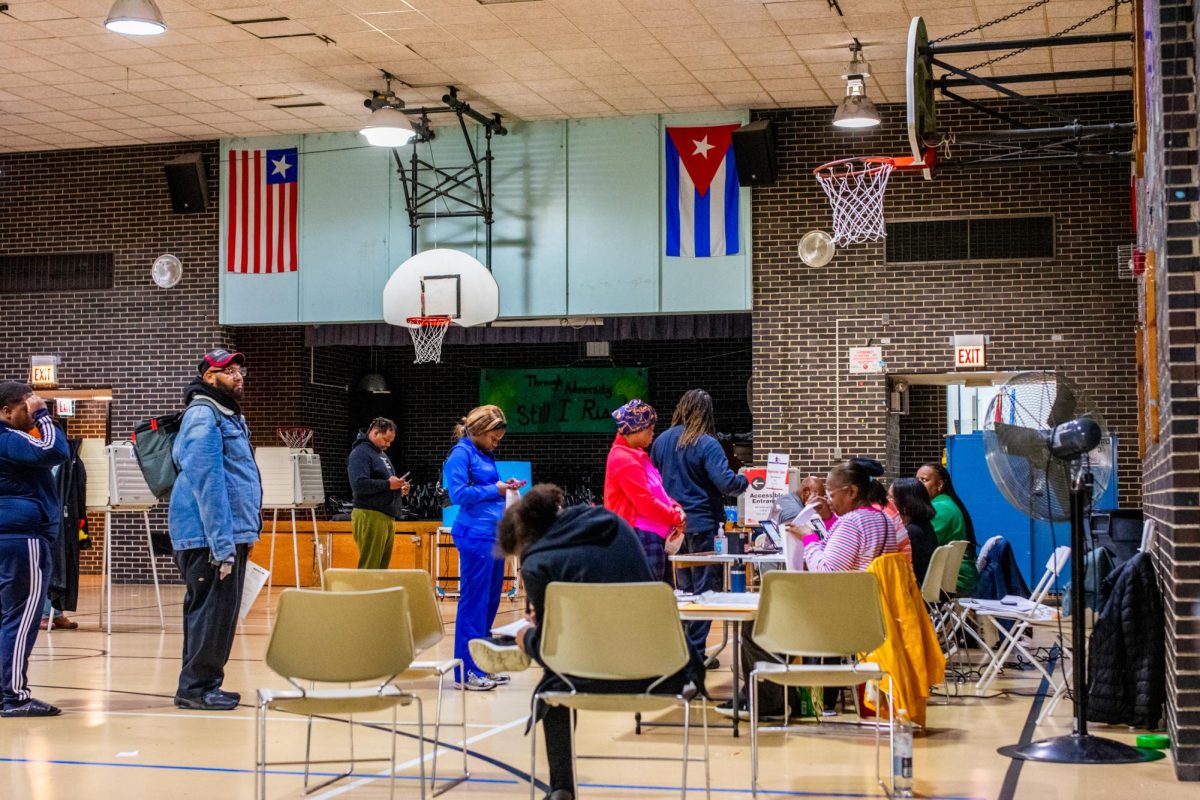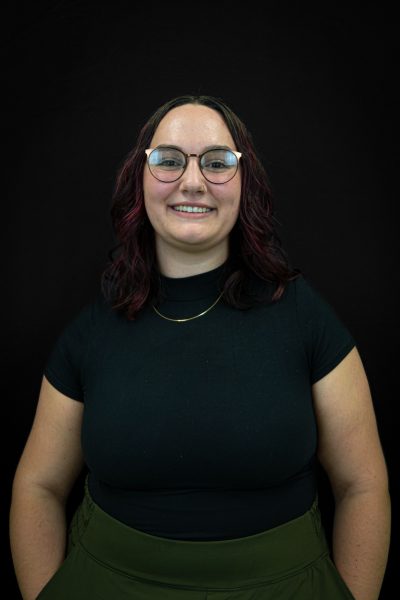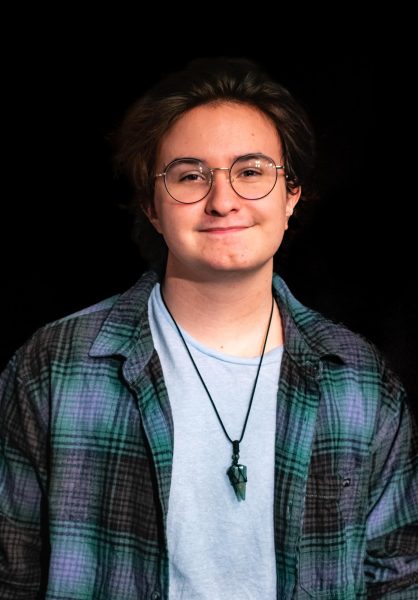Robin Athy, a first-year illustration major, had to block his grandma on Facebook.
Athy said that his paternal grandparents are very conservative. “My grandmother was not very accepting of me personally when I changed my name and everything,” Athy said. “I had to end up blocking her on Facebook because she kept posting a lot of transphobic stuff.”
But said he does have family members who are extremely supportive. “Me and my parents even attended a protest against anti-trans bills,” he said.
For many students like Athy, politics are extremely personal, especially in a tight presidential election. Democratic candidate and Vice President Kamala Harris is locked in a statistical tie with Republican candidate and former President Donald Trump.
As the Nov. 5 election approaches, tensions have increased for many students and their family members when they don’t agree on core issues like reproductive and gender rights, the environment and economic policies.
Some Columbia students told the Chronicle that they can’t talk to parents or extended family about politics because the conversations are just too tense and too personal.
Junior film and television major Bobbi McNamara said that they and their father “were on the rocks for a very long time, not talking even though we were living in the same house–and our relationship really suffered.”
As a result, politics are not a topic of discussion in their household anymore.
“I’m still aware of who my family is going to be voting for in the upcoming election,” McNamara said. “But I’ve realized at this point that I can’t make them see anything they don’t want to see.”
Even candidates at the top of both major political party tickets have had similar experiences.
Donald Trump sued his niece, Mary Trump, for releasing his private tax return papers without consent. Kamala Harris and her father, Donald Harris, rarely speak with one another. Jeff Walz publicly denounced the political policies of his brother, Tim Walz.
Columbia students said it’s especially hard when they don’t see eye to eye with their parents.
Parental figures have always played a “primary role in the political socialization of their children,” according to the National Library of Medicine.
Rami Gabriel, a psychology associate professor in the School of Communication and Culture, who has been teaching a class focused on self-identity for 17 years, agreed.
“Each individual is a product of the home they grew up in,” he said. “So that also includes cultural norms, and sometimes even political positions.”
Gabriel said that college-age students often begin to form their own views as they move away from home and enter a more diverse environment.
“Sometimes those views are a direct reaction to where they are coming from, sometimes they are a continuation and sometimes they are a modification,” he said. “This is a period where they have the most conflict, usually because the young people are figuring out where they stand.”
Junior audio arts major Sam Roethgen said his parents “definitely had a big effect on me and who I am right now.” However, he said his relationship with his family “hasn’t always been easy to navigate.”
“I honestly do think my parents played a big role,” Athy said. “They want to do what’s best for me and my brother, and they instilled values of acceptance.”
Athy has not always had the same experience with extended family members. Some have silently rejected him.
“I definitely got my viewing of ‘treat people the way you want to be treated,’ be patient and show kindness to people, from my family,” McNamara said. “But we do not share the same political values; they are a lot more conservative and Republican.”
They also said that moving away from home has helped ease the tension.
“Now when we’re together, it’s more about commonalities,” McNamara said. “It’s not a ‘thing’ anymore because I’m on my own and doing my own thing.”
Anna Nagana, a sophomore film and television major, said she felt like both she and her parents helped form her identity.
“I grew up Catholic, but now I’m just trying to learn my own beliefs,” Nagana said.
Nagana said that because her father came from Mexico, they have vastly differing political beliefs, especially on topics such as race and abortion. However, she said that they “take the time to educate each other” when they clash.
Junior marketing major Summerlove Robles said her family has influenced her because they don’t talk about politics very much.
“I feel like I do my own research and form my own opinions,” Robles said.
Cheyanne Owens, a junior music business major, did not feel pressure to think a certain way from her parents.
“My mom and dad gave me the freedom to make my own decisions.” While she did not pay much attention to politics as a kid, Owens said, “I realize now that these policies do affect me, especially as an African-American female.”
Owens said that she has taken the time to educate herself, because “this election is really important; it could make or break us.”
As 18 to 29-year-old voters have largely grown up in the era of technology, Gabriel said that shifts in the online landscape have impacted the worldview of their generation.
“The changes in the country affect young people differently than they affect people who are more established, economically and politically,” Gabriel explained.
Junior audio arts major Jalon Emanuel said the world changes with time.
“We’ve got to be adaptive because if we get stuck in our old ways we’ll be left behind,” Emanuel said.
A 2024 Gallup poll shows the country remains at center-right, with 36% identifying as conservative, 25% liberal and the remaining 36% saying they are moderate. The “liberal” percentage has inched up over the past three decades and is currently one percentage point shy of its all-time high. Gen Z and women are becoming more liberal.
According to another 2024 poll conducted by Pew Research Center, 66% of voters ages 18 to 24 associate with the Democratic Party, compared with 34% who align with the GOP.
A spring 2024 Harvard Youth Poll, found that the top issues for youth voters were reaching a cease-fire in the Israel-Hamas war, immigration at the southern border, reproductive freedom and economic concerns.
Robles said that she understands why people are so invested in economics but feels that “it’s kind of greedy worrying about money instead of the morality.”
Melanie Manzoa, a junior marketing major, said that her family is voting for Trump just because of the economy, but that she will not be.
“My morals don’t align with his,” she said. “Our future is at stake.”
Copy edited by Doreen Abril Albuerne-Rodriguez



